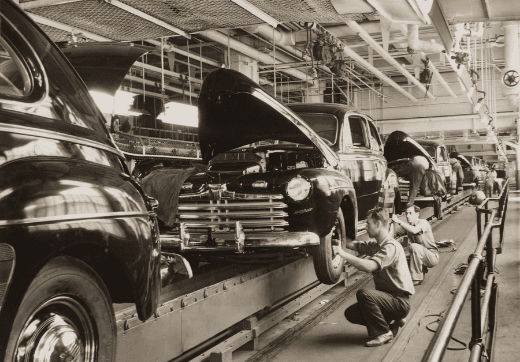You are probably aware that magicians use distraction as a part of their performances. They use smoke, flashing lights, and beautiful assistants to hide what they are actually doing.
Did you know that cooperation uses similar tricks to seek profit and power? But they don’t want it to be that obvious.
So what is the distraction they have been hiding behind? It is a set of progressive social values known as woke ness. By publicly supporting causes like gender diversity, racial justice, and climate change, companies win consumer trust, resulting in more revenue. At the same time, they keep power-grabbing behind the scenes. Are cooperations evil?
What being woke means for companies
Being woke originated a decade ago from Black activists warning each other to stay woke, which means to be alerted to the realities of racism. Now you can be woke to any number of race and gender-based injustices. When you are woke, you are hyperaware of invisible power structures that operate everywhere.
This work progress ideology has gained a lot of traction in recent years. And businesses have taken note. They use their weaknesses to favor a rising political sector and profit off their social values
It is called woke capitalism, where companies profit from social values to distract from lesser savory dealings. In the process, social values become debased and provide demography consequences.
How stakeholder capitalism changed
Companies have felt an increasing need to comment on social and political issues in recent years. The reason is stakeholder capitalism which demands that companies are responsible for social and shareholders’ welfare.
At the end of 2018, the Business Roundtable, a top lobbying group for American companies, revise its policy statement. Before, it was said that a business’s primary purpose was to generate value for shareholders. The new statement said that companies are also accountable to stakeholders by the business like the customer’s employees, suppliers and communities, and shareholders that own the businesses.
By doing so, a new era of stakeholder capitalism arose.
The problem is that stakeholders’ capitalism requires companies to comment and take an active role in political matters. They need to choose the causes they prioritize and what position to take to do that.
But this isn’t a business judgment; it is a moral one. So it doesn’t make sense to ask a hedge fund manager what he thinks about climate change.
Beyond that, American citizens aren’t supposed to learn from businesses which values and causes they should support. They are supposed to learn those values in society and at the voting booths. When corporations flexibly push their views, they effectively delicate people’s values for them.
While some CEOs have progressive values, others don’t. It is acceptable for CEOs and other companies’ employees to speak about their values as private citizens. But it isn’t ok for them to blast those messages using their corporate megaphones, money, and market power.
In a world of stakeholders, capitalism consumers assume that companies push both financial and social interests. By making that assumption, they become less likely to question company decisions. And businesses ultimately get away with doing things that leave society worse off.
To end those corporates’ misbehaviors, the business judgment rule or BJR limits special legal privileges for corporations.
The purpose of the BJR is to protect directors and offices of a corporation in case they are sued for making bad business decisions. But the only way to prove that someone violated the BJR is to have a conflict of interest when making a particular decision.
While conflicts of interest are typically defined in financial terms in real life, they are rarely limited to that sphere.

Imagine, for instance, when you sit on the board of a pharmaceutical company, and you are interested in winning a political appointment who is becoming Secretary of Health and Human Services if you are asked to decide how to price a drug, the decision conflicts with your desire to win a political appointment.
The BJR could be limited so that CEOs and directors don’t receive its protection if they use business resources to support their social causes. Executives would start thinking twice before writing a check to some social intentions or encouraging their customers to support a politician or another.
The beliefs of employees
Wookeness teaches its disples to see injustice and privilege everywhere.
Employees at woke corporations today have to attend diversity and inclusion. Companies like Coca-Cola hold training that teaches workers to be “less white” and that systemic racism determines human destiny. The Employees who reject this narrative are often fired.
When the US Equal Employment Opportunity Commission of religion meets this wokeness, companies can’t punish employees for expressing woke viewpoints. But neither could an employer impose its own woke beliefs on employees. It’s a solution that works for everyone
In Mid 2019, the company Airbnb hired a former FBI deputy director as a chief trust officer. His job was to protect the user’s safety on the platform. But Joyce had resigned before the year ended. Why?

It turns out that Airbnb regularly shared data about American use with the Chinese ruling political party, the CCP. The data included phone numbers, email addresses, and messages between users and the company. When Joyce aside concern about this practice with the senior Airbnb executives, he was told, ” We are not here to promote American values.”
Why does a political party like the CCP get involved in American company dealigns.`
First, a company cultivates an image as a prime example by promoting a woke social cause. It wins the consumer trust and then monetizes it by generating clicks selling ads, and charging fees. After the company has collected a large amount of user data, the CCP demands access to it in exchange for allowing the company to do business in China.
When a company does as the CCP says, it can make a lot of money in the Chinese market. They keep silent about Chinese abuses of power while continuing to signal their support for woke causes in the US.
These companies trick consumers into believing they are innocent even as they obey these injustice regimes in countries like China.
During the COVID-19 pandemic, Youtube banned videos critical of policies such as lockdowns. The justification of Youtube was that the videos include unsubstituted medical content. But the necessity of lockdowns was just an opinion, not a factual statement.
When you look at it a certain way, these tech companies wanted to make sure people weren’t too critical of lockdown. After all, lockdowns meant more people who shop for groceries on Amazon taking meetings over Zoom and subscribing to Netflix.
But even these explanation doesn’t cover all of it. Silicon Valley doesn’t only care about profit but also wants raw political power.
When Big tech becomes too powerful
Often the political parties, Replucians, and Democrats agree that Big Tech is too powerful. Yet it keeps growing and growing. One of the causes of the rapid growth of these companies is a part of the law called Section 230 under the Communication Decent Act of 1996.
The act gives Internets Service Providers, including Facebook and Twitter, immunity from the content published on their platforms. It means they can’t be sued for things user posts or tweets. It protects platforms from liability for restricting content that seems unpleasant.
The law was created, among other things, to prevent children from accessing pornography on the internet. But in practice, it enabled companies like Facebook and Twitter to reach their huge size. Today tech giants abuse their Section 230 power to prevent adults from reading articles or seeing content that those tech businesses dislike.
While the idea of simply repealing the law gets traction, it may ultimately do more harm than good by preventing smaller social media competitors from competing with the giants. Instead, Section 230 should simply be changed to say that the standards of the First Amendment bind any company that benefits from it.
Either a company continues to benefit from Section 230, or it can choose to moderate and censor user content but not both.
Why community service is important
Community service isn’t something to be done in exchange for personal benefit, but that is what it’s become. Many young people never perform real service for someone else, and wokeness is the result.
The solution is to address the false images of service at its core. Citizens need a real sense of meaning, so there is no void for companies to use in the first place. A good idea is to mandate civic service for young students.
It helps to focus not only on the physical differences but also on the deeply shared qualities that unite them. By rediscovering a shared identity, people can join in solidarity once more.
What companies do wrong
The old view that the primary purpose of cooperation was to generate profit for its stakeholders has changed. Instead, stakeholders claim that companies have to satisfy various stakeholders, demanding that companies take a stance on social and political issues.
The problem companies attached themselves to a woke ideology to gain popularity at the moment and use their megaphones and market power behind those values. The company dictates what the average Citizen should believe. More than that, the company’s involvement in social issues distorts demography, helps the authorities regime overseas, and shows the missing system of meaning.
Are corporations evil?
Try to think of some companies you really hate, the ones you think make the world a worse place.
There come quite a few in mind, like some fast food companies, a few energy providers, and probably some cellphone contractors.
Many companies drift toward the “dark side,” becoming disliked by customers for various reasons: the quality of their products, their awful customer service, or their policies toward the environment and the developing world.
But it doesn’t have to be this way. There is a reason why companies seem to turn bad. However, they can avoid getting on our bad side. They just need to know how to remain our friends.
From banking to food and fashion to advertising, there are more than enough examples of how greedy, ugly and ruthless capitalism can become. Most people accept it as part of doing business.
The story of cooperation sacrificing their integrity for profit is as old as capitalism itself. There are very few companies that manage to maintain a clean reputation in their entire lifespan. In reality, no company has ever been founded to be either good or evil and stayed that way forever. Rather most companies found themselves in an endless cycle.
Most companies move through predictable successive stages of honesty, then efficiency, deception, and ultimately redemption if the business lasts that long.

In fact, many “bad companies were industry leaders in their early days but then lost sight of their customer’s interests somewhere along the way. A prime example of this phenomenon is Mcdonald’s. Founded in 1950, the company’s motto was “Quality, Service, Cleanliness, and Value.”
Yes, quality was one of the company’s priorities, and it even got immediate success for the brand. Yet today, McDonald’s fights scandal after scandal, and they get regularly sued by customers who blame the hamburgers and French fries for their excessive weight.
What happened? Well, somewhere along the way, the franchise moved into the efficiency section of the cycle and pushed quality and service into the background.
So most good companies are either in their early stages and haven’t become twisted yet or are old horses attempting to redeem a shattered public image.
When you look it that way, you can see Mcdonald’s might not be dead and buried yet. It could turn its image around and revert to its once-forgotten focus on quality.
The problem of efficiency
Since companies go through cycles, no company starts out naturally bad. Not even the cooperation you hate most in the world. In fact, businesses begin their life cycle in the first stage, called an honest area.
A newborn company is like a young, innocent, and a quite weak baby. To survive its first years, a company can’t afford to play dirty because it has to convince the employees that the business is worth their efforts. And the consumers spend their time and money.
Take Ford Motors, founded in 1903. It was the first major organization that offered its employees a 40-hour workweek, health insurance, and safety protections.

The honest era is a time of people’s profit, so everybody wins. Most Silicon Valley-based companies are still at this stage by painting idyllic corporate images offering free organic lunches and fitness.
The problem is when a business grows. The pressure to stay competitive makes it harder to stay honest and maintain quality. This is the efficiency era.
Sticking with the Ford example, it’s interesting to see after 50 years of its creation, the company had become known for its innovative management and production practices while still valuing employees’ working conditions. But Ford had also begun to focus more and more on productively.
After all, a business is only sustainable if it can stay ahead of the competition, which means being efficient. But the problem is when efficiency is the very goal being pursued.
In the food industry, technical innovations like growth enhancement, genetic modification, and antibiotics are supposed to lead to greater yield. Still, they turned many of the meals we consume into health hazards. The race to make food as efficient as possible overshadowed its original goal to produce food.
After the next two-phase, it only starts to go downhill.
When a company needs to apologize for choices
Keeping a company steady during the efficient era is good, but it becomes tempting to drift over to the dark side as time goes by. This is exactly what happens when a business enters the deceptive era.
Typically, if companies decide to relocate production to developing countries that turn into child labor, they implement misleading advertising campaigns. They employ deceptive tactics, offer large salaries to executives, and so on.
For example, by the 1970s, the Ford Motor Companies’ funding values were a distant memory. After launching the infamous Ford Pinto, the executive team knew the car’s life-threatening technical flaws. But they never opted for a global recall that would have prevented further incidents.
Instead, they went for the cheapest alternative leaving it on the market and settling in court with families of victims.
Such ruthless decisions may lead to financial success. But they are short-lived consumers who start to wise up and become dissatisfied.
The apologetic behavior is about restoring what has been broken or lost on the way to success: faith, confidence, quality, and accountability. To do so, the company needs to make its wrongs right by replacing misguided leaders and improving from the inside out.
In the 90s, Ford began to invest in higher quality standards to increase customer satisfaction. And in 2009, many competitors got government money; Ford released several ads explaining the company’s intent not to use the bailout money.
Even though customers might first remain careful, they are sensitive to an admission of guilt. In 2010 Toyota made an apologetic statement admitting to mistakes that one of their models had a lethally dangerous braking problem.
The choice to apologize helps rebuild the image of an organization that cares like Toyota, which helps regain consumers’ and employees’ trust.
Out of all these phases, this is clearly the most appealing one. If a business only could remain in the honest era forever.
How to become an honest company forever?
There is a way to remain in the honest era forever. But how? Well, the companies that stay honest share seven core beliefs, which will be broken down one by one.
1. People count. While it may seem obvious, companies are made of people, not parts, and they are valuable and diverse to be treated with respect. To remain honest, the cooperation must treat three kinds of stakeholders right.
- Team members: When employee morale falls, the business is not far from collapsing along with it. But if employees can identify with their company and proudly carry coffee with their company logo, they probably feel like they count.
- Customers need to feel special and valued, and their complaints should be taken seriously and addressed with compassion and care. An ethic that Southwest Airlines’ innovative policy uses is not to charge fees when customers need to reschedule.
- Vendors often overlooked are also very important. They are the face of a company and should be treated accordingly.
2. The truth matters. In the documentary Supersize Me, the truth was exposed about the nutritional value of Mcdonald’s menus where Morgan Spurlock ate three Mcdonald’s meals a day for a whole month.
Besides the serious problems of his healthy, the docu highlights a current trend exposing company lies. Nearly every piece of modern advertising features hollow words and taglines that don’t quite lie but are still not the truth.
While they think they are being clever, a business’s luck will eventually run out. Companies that refuse to mix the truth are the ones that will earn a loyal customer base.
How to become more transparent?
Another important step to keeping your business honest is becoming more transparent.
3. Transpery can be tough, but it is an act of liberation. Full transparency is freeing. You can reinvest the time you spend concocting schemes and hiding secretes to optimize your business. And costumers are also set free they can engage with the company without speculation about its honesty.
Bypassing transparency seems foolish in a world where any piece of info can be fact-checked online. Also, resite to be something else and be authentic. Nothing is more fake than a company trying too hard to be real.
It rather means practicing what you preach. Take Bailes, which has been authentically Irish since its launch in 1974. As Irishness is the core of success, the company always fought the urge to relocate its production. Bailes is manufactured in Ireland, and only well-bred Irish dairy cows are involved in their production process.
4. Generosity. It often seems like running a business is the opposite of generosity. But profit-hungry strategies aren’t good for customers today. The Generic is a top priority because modern customers don’t just purchase a brand. They want to buy into the brand’s values too.
An example is the shoe brand TOMS, the pioneer of the one-for-one model, where every pair of shoes purchased gives an additional pair for a child in need. It makes the brand very successful thanks to its policy of giving something back.
Quality is important
One of the core values every honest company needs is a commitment to high quality. You will have a competitive advantage if you can archive it because quality speaks for itself.
When you produce high-quality products, it’s clear that your company values its customers. The quality also builds credibility. A well-designed website, the package of products, or the choice of the page for a business card may all seem trivial but contribute to the image that customers have of an organization.

Customers are more likely to think that if they care about these details, I can trust they will also care about me as a client.
While designing quality might mean increasing prices or decreasing profit margins. But profit and price are not as important as providing customers with the right emotions.
In-store you most likely don’t want to experience cheap lighting and fixtures. You more likely want highly quality surroundings that make you feel great.
The second core value for an honest company is to face fears. Fears have different shapes and forms. It can be the fear of change when you are convinced that the policies and procedures that brought success should never be modified. Or it manifests itself as a doubt to admit faults.
Take the Apples Maps app that tried and failed to compete with Google maps leading some users to a completely wrong location. But Apple, instead of ignoring complaints Apple CEO Tim Cook had the courage to admit the company’s mistake and made a formal apology. It was a useful opportunity for Apple to prove that their company values honesty.
Why customers are powerful
Acknowledge that the most powerful people are the customer, which means you are also powerful. To break the cycle of good companies becoming bad, we need to learn to behave as consumers.
Think about your last trip to the grocery store. Did you pay attention to the origins of goods and sustainable packaging? If your eyes are focused on price tags, it’s time to make a change.
The American household spends more than $50000 per year in the marketplace, showing how powerful consumers can be if they are deducted and willing to act. When all Americans directed that money to companies in the honest era, these companies might not feel the need to move into the bad cycle.
If you are ready to take the next step, you might take your time and become an entrepreneur or work on a project.
The timing now is spot on after the economic downturn of capable people who just lost their jobs looking for new ways to make money. The current trend in social responsibility is only the beginning. Don’t get stuck in the how-to phase too long: “How to create an online business?, How to find a passion?” and so on.
You learn by doing, not the other way around. Just dive in and start making good things happen.
Conclusion
Capitalism is not only a story of good and evil. It is much more complex as companies start out with pure intentions and become corrupted along the way. But this pattern can be avoided by learning from past mistakes and developing a fresh new economic model where people are of the greatest importance.